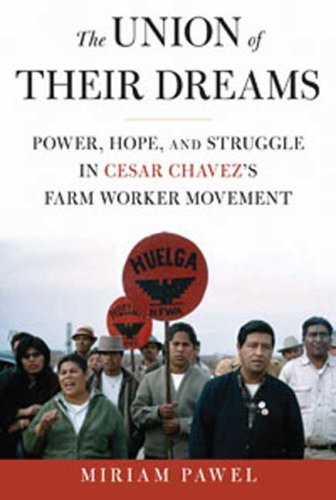I went looking for my first job in publishing in 1982, in the third year of a recession. It took months; I interviewed with about 30 different people. “Are you sure you want to work in this industry?” they asked me. “This is the worst time there has ever been to look for a job in publishing.” In fact, it
was pretty bad, but finally I found a job at a small, independent publishing house, and discovered I loved the work. A few years went by, and it was time to move on--I hoped to a major trade publisher.
“Are you sure?” I was asked again. Trade publishing was now going through a wave of consolidation. I answered even more ads and wrote even more letters than I had the first time around. I talked to about 60 people. “This,” many distinguished publishers told me in somber tones, “is the worst time there has ever been to look for a job in publishing.”
But eventually I found a spot, and I still loved the work. Fortunately, the next couple of jobs were not so hard to find. In 2006, I had the good fortune to become publisher of a new imprint at Bloomsbury (and the bad fortune to launch my first list right into the 2008 recession, as the economy and the book business melted down together, but that's another story). Last winter I was talking to a friend who had been laid off in the industry bloodletting and feeling discouraged at her difficulty finding a new position. “Don’t blame yourself,” I said. I had heard the words so many times they now rose unbidden to my lips: “This is the worst time there has ever been to look for a job in publishing.”
But maybe, in fact, it isn’t--if you set aside the habitual Chicken Little clucking our industry falls into. Not too long after the conversation I just described, I was at dinner with a few very senior, very smart publishing colleagues. One of us mentioned he knew a student just graduating from college who was interested in publishing. Another asked, “well—would you tell him to go into the business?” “Of course I would!” said a third. “This is the most exciting time I can think of to go into the publishing business.”
I was so surprised at this expression of outright bullishness from a veteran publisher that I had to stop to think about it—as did the others of us at the table. But it didn’t take us long to agree that he was right. Publishing is going to be a fascinating and exciting business over the next several years. It has gone from being a “mature” industry (in business-speak, that means boring) to a dizzying free-for-all. E-books have the promise of expanding readership widely. Social networking offers more effective ways of spreading the word about books than we have ever had. Print books aren’t going away either. My personal belief is that the old-fashioned art of bookmaking will become more valuable as printed books set themselves apart from electronic ones. And we’re already seeing experiments where written narratives are mixed with video or other media to create new forms of literature altogether.
All these developments hold peril as well as promise. The coming years are certainly going to be a difficult and uncomfortable one for many houses, especially the large corporate ones. Price wars, the decline of bookstores, the collapse of traditional publicity outlets, piracy, and other problems will create big dislocations in the industry. But this means publishers are going to try new things on a scale that I certainly haven’t seen in my working lifetime—new business models, new forms of content, new ways of working.
Many of these efforts will fail; if we’re lucky, some of them will succeed wildly. But they mean that publishing, in general, is going to be a more lively, more disorderly, more wide-open business than it has been in a long time—probably since the paperback revolution of the 1940s and 50s. I am sure it will offer more opportunities to smart, creative young talent, especially because it’s younger people who know more about the tools and culture of the web that is going to be the essential medium for publishers reaching readers. For a lot of big corporations, the coming years may be the worst of times: the pain of transformation may outweigh the gain of reinvention. But for the publishing personnel of the future, it could be the best of times. Especially if you like roller-coasters.




